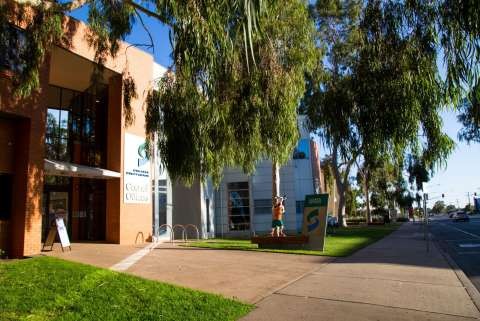Some of Australia’s biggest nation-building projects are entangled in a broken offshore environmental regulation system that is threatening the nation’s economy and climate change targets.
Vital energy supply needed to underpin domestic energy security and affordable energy prices for Australian homes and businesses is at risk.
Potential emissions reductions on the path to net zero are under threat.
And the many thousands of jobs, tens of billions of dollars of investment and substantial taxation revenues delivered to government budgets from major projects are on the line.
Indeed, the impact of Australia’s problems surrounding the regulatory approvals process for offshore project environmental plans is far wider than is appreciated.
The Federal Court’s finding last week that the national regulator did not have the power to approve part of Woodside’s $16.5 billion Scarborough gas project off Western Australia is bewildering, yet not an isolated incident.
Last year, Santos experienced a similar situation when the regulator’s approval for its $5.8 billion Barossa Project off the Northern Territory was set aside by the same court.
Both of these projects alone total over $20 billion of investment, support thousands of new jobs, deliver critical stimulus into regional communities as well as producing much-needed new gas supply to underpin energy security in Australia and our region.
More than 40 environmental plans linked to gas projects worth tens of billions of dollars are currently before the national regulator, queued up in its approvals process – many since 2022.
Renewable energy developments such as offshore wind projects are also overseen by the National Offshore Petroleum Safety and Environmental Management Authority (NOPSEMA).
The deployment of emissions reduction technologies is also at risk given offshore carbon capture utilisation and storage (CCUS) projects must also receive these same approvals.
And then there’s the pipeline of oil and gas decommissioning projects that will also require approvals.
Yet there’s a logjam in the approval process: Only four environmental plans have been approved since the first Barossa decision and remain so. The fifth was the overturned Scarborough approval.
Whether or not the official approvals these critical energy and decarbonisation projects receive is worth anything is in serious doubt.
To be clear, Australia’s oil and gas industry seeks better regulation, not less regulation.
Comprehensive and effective consultation with Traditional Owners has been an important part of the work of our sector for decades and we are committed to it.
But procedural fairness to operate is expected, whether it’s big business, small enterprise or personal investment.
Australians would not tolerate a situation where an aspiring homeowner was granted building approvals after much effort and cost only to see their approval disappear before their eyes when work had already begun.
Similarly, it is difficult to understand how a business that plays by the rules, consults with stakeholders in good faith and is granted an approval by the national regulator should then see that approval overturned.
The time delays and costs incurred by this mess are substantial.
The collective cost of having vessels and equipment on standby is now running into several hundreds of millions of dollars. The standby fees for a rig can be as much as $500,000 a day.
And consider the importance of these projects to their local regions, delivering domestic gas supply at a time of growing demand in the face of potential shortfalls, and substantial economic benefits in jobs, taxation and regional investment.
In its overall economic outlook, the NT Budget has noted the Territory’s economic fortunes all but hinged on the Santos Barossa Project.
“Economic growth is forecast to average 2.9% over the five years to 2025-‑26, and is expected to be heavily influenced by the Barossa Project,” the NT 2022-23 Budget said.
The regulatory uncertainty also amplifies the issue of sovereign risk.
Australia’s reputation among international investors as a safe and reliable investment destination and energy supplier amid the global race for capital is at risk.
This reputation centres on certainty and stability and is critical for our global competitiveness and valued long-term relationships with trade partners and investors.
It has helped Australia become a global resources powerhouse for commodities such as gas, coal and other minerals and delivered extraordinary economic benefits to Australians.
It is the same reputation the nation’s energy industries are relying on during the net zero transformation, growing export industries for hydrogen and critical minerals.
But what international investor would seriously think Australia is a good place to invest billions of dollars when an approval granted by the national regulator means so little?
Regulations which provide clarity and certainty for industry while maintaining consultation obligations are desperately needed.
The Commonwealth has promised, in its Federal Budget, a review of environmental management regulations for offshore energy to provide clarity.
This review must be fast-tracked by government. Reform is urgently needed.
Governments must make clear regulations that maintain high standards of consultation with stakeholders.
But the rules must also provide regulatory certainty when an approval is granted.
Samantha McCulloch is the Chief Executive of Australian Energy Producers, the peak industry body for the explorers, developers and producers of essential energy – oil, gas and lower emission fuels





